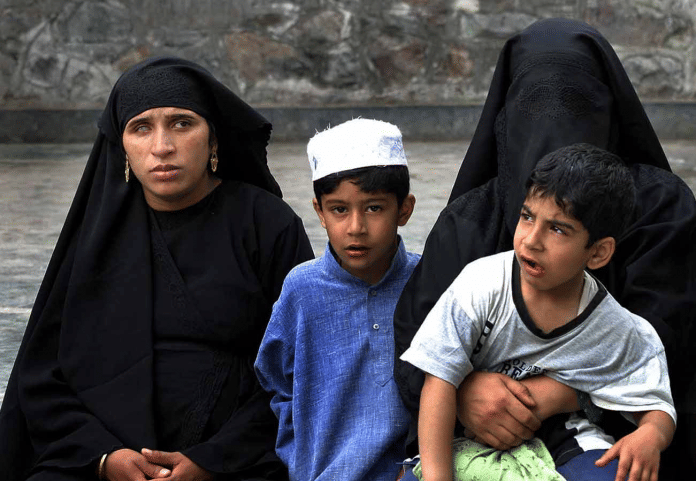Several Indian courts, including the Supreme Court, have ruled that the practice of instantaneous triple talaq is invalid and un-Quranic. It is unlikely that the upcoming hearing from May 11-19 by a constitution bench headed by the Chief Justice, will be groundbreaking.
- Prime Minister Narendra Modi recently urged the Muslim community to not look at the issue of triple talaq through a political lens.
- Uttar Pradesh BJP minister Swami Prasad Maurya said that Muslim men use the practice to “satisfy their lust by changing wives”.
- All India Muslim Personal Law Board said: “The validity of triple Talaq cannot be decided by the Supreme Court… (It is) permissible in Islam as the husband is in a better position to take a decision.”
Away from the political and religious glare, the issue of triple talaq — a practice among Barelvi Sunni Muslims — has been contested fiercely and with great nuance in courtrooms across the country for many decades now.
Between the Shah Bano case in 1985, and Shayara Bano in 2015, a lot of juridical progress has been made. Much of this progress has indeed been made without political consideration.
The Supreme Court begins the process of wrapping up its hearings on the legality of triple talaq from May 11-19. Petitions filed by Shayara, Bharatiya Muslim Mahila Andolan, a government affidavit and a suo moto petition will all be heard together.
Notwithstanding the hullabaloo over the upcoming hearing, several courts, including the Supreme Court, have already adjudicated decisively on the matter, calling it invalid and un-Quranic. This has prompted many to ask if the new bench will bring the much-needed closure.
Here is a look at recent court rulings on triple talaq:
2002: In the landmark Shamim Ara versus State of UP ruling in 2002, the Supreme Court pronounced arbitrary triple talaq invalid. In the precedent-setting adjudication, the court said that in order to be valid, talaq must be in correspondence with the Quranic injunction:
“None of the ancient holy books or scriptures mention such form of divorce. No such text has been brought to our notice which provides that a recital in any document, incorporating a statement by the husband that he has divorced his wife could be an effective divorce on the date on which the wife learns of such a statement contained in an affidavit or pleading served on her.”
2002: In the Dagdu Pathan v Rahimbi Pathan case, the Bombay High Court held in ever more unequivocal terms that a husband may not annul a marriage at will. The full bench of the court invoked the Quran to say that instantaneous talaq was invalid, carefully stepping away from demonising Islam:
“To divorce the wife without reason, only to harm her or to avenge her for resisting the husband’s unlawful demands and to divorce her in violation of the procedure prescribed by the Shariat is haram.”
The court further ruled that in case a wife disputes a divorce in a competent court, then it must be proved that a valid reason was given, arbitrators appointed, and reconciliation process was conducted, without which, the talaq would not be considered legally tenable.
2004: The Bombay High Court reiterated its position in Najmunbee vs Sk Sikander Sk Rehman, and subsequently, in Dilshad Begaum Ahmad khan Pathan v Ahmad khan Hanif khan Pathan.
2007: The Delhi Court, in Riaz Fatima v Mohd Sharif case, stated that the prerequisites of talaq in the particular case were not met, and laid down clear guidelines in the process of talaq that include giving valid reason for divorce, proclamation of talaq thrice in the presence of a witness, attempt at reconciliation and payment of maintenance for the iddat period.
2016: The Bombay High Court in Shakil Ahmad Shaikh v Vahida Shakil Shaikh case, once again ruled that a document like the talaqnama does not suffice in order to render a talaq valid in the absence of other prerequisites.
2016: The Kerala High Court too delivered a similar judgment saying, “the Quran nowhere approves triple talaq in one utterance and on the other hand promotes conciliation as best method to resolve marital discord.” The judge also made a case for the Uniform Civil Code and the codification of the law of divorce for Muslims.
2017: The Madras High Court, in an interim order, clarified that “for the purposes of courts of legal proceedings, the certificate (validating talaq as per Islamic Shariat) issued by the Chief Kazi is only an opinion and has no legal sanctity”.
Given the litany of already existing legal precedents, it is unlikely that the May 11-19 hearing by a constitution bench headed by the Chief Justice, would be groundbreaking, says a senior lawyer, who spoke on condition of anonymity. If the Supreme Court says triple talaq is untenable as per Quranic injunction, it has already been said before.
Unless, she adds, the bench comes up with a radical ruling stating that the Shariah can be interpreted by courts – a move which would expand the scope of the case well beyond triple talaq, polygamy and nikahhalala and open a Pandora’s Box. It may require an amendment in the Muslim Personal Law (Shariat) Application Act of 1937, and call for an intervention by the legislature.
But then, the Supreme Court has clarified that it will not debate the Uniform Civil Code now. In either of the likely outcomes, there may not be as much immediate headway as is being anticipated.
– Sanya Dhingra is a Reporter with ThePrint. You can follow her on Twitter @DhingraSanya






